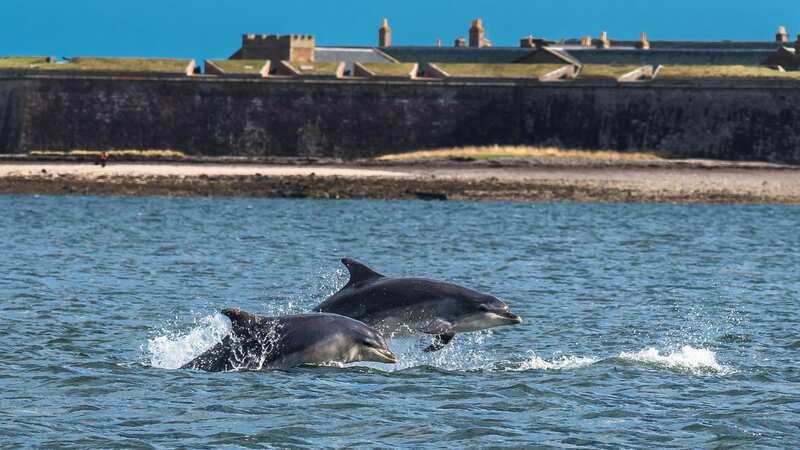

Lurking off our shores, super trawlers are causing untold damage to our marine life – without being held to account.
One of these giant trawlers, 95-metrelong Dutch ship Dirk Dirk, which is capable of plundering thousands of tons of fish, has just spent days off the coast of Brighton where I live.
It uses nets up to 1km long with a net mouth 200-metre wide to target fish. In comparison, a double-decker bus is 12-metres long. As I write, the boat, which has been banned from Australia, is off the coast of Aberdeenshire. Another seven super trawlers have also been fishing around the UK in the past week.
Their giant nets result in huge levels of bycatch – catch-and-discard animals fishermen can’t sell. The unprecedented hauls are legal as the boats operate 12 miles off the coast.
But campaigners warn they are damaging the marine ecosystem, and species including endangered bluefin tuna and dolphins are being caught, triggering an “ecological disaster”. More than 5,000 dolphins have washed up dead on our shores in the past nine years, a 15% rise on the previous seven.
 Teachers, civil servants and train drivers walk out in biggest strike in decade
Teachers, civil servants and train drivers walk out in biggest strike in decade
Experts say this could be the tip of the iceberg, as “cetacean bycatch” – when dolphins are thrown back dead or injured – often sink to the seabed. Others are ground down for animal feed.
Since 2021, vessels licensed to fish in British waters have been required to report marine mammal bycatch to the Marine Management Organisation within 48 hours. But a freedom of information request revealed no such data exists.
The Sussex Dolphin Project and World Cetacean Alliance say the UK’s legislation is not working and is calling on the Government to hold super trawlers to account.
Harry Eckman, CEO of the alliance, said: “Rather than addressing the devastation caused to our seas by super
trawlers, they counter with incomplete data and unsubstantiated assurances. Local UK fishers are having livelihoods destroyed, marine mammals are slaughtered as bycatch, and UK seas are being emptied of life and biodiversity. The legislation exists, the Government just needs to make a choice to act.”
- They have collected more than 134,000 signatures. To add your name go to change.org/p/uk-parliament stopdolphins-dying-in-supertrawler-nets